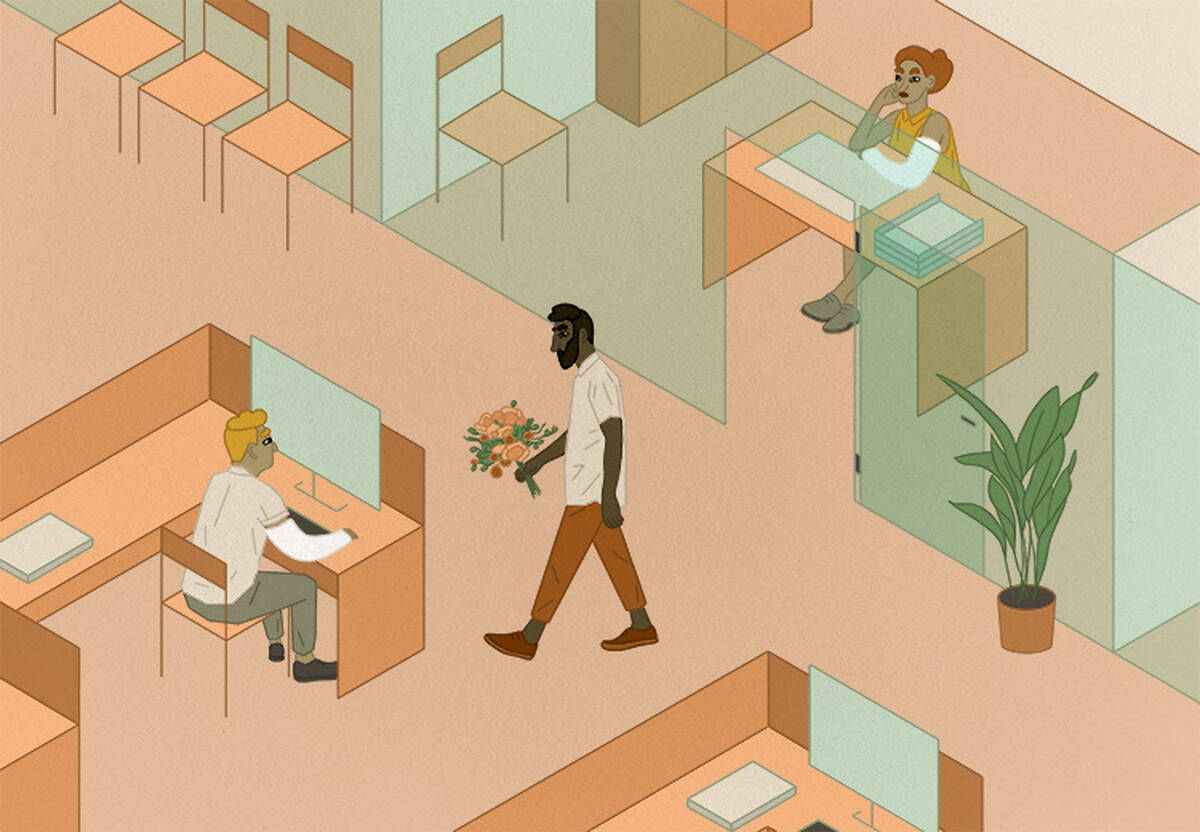Ahhh, office drama.
A colleague, up all night with a sick child, drops the ball on a group project, angering the rest of the team. Someone else, miffed at being left out of an office happy hour, sends an aggressive email, leaving a third colleague in tears.
Nobody wants to spend all day surrounded by anger, resentment, or petty snubbing. So it is important for leaders to create a workplace culture that is empathetic.
Empathy, says Nour Kteily, an associate professor of management and organizations, “is an important part of what makes us human.” But that doesn’t mean it always comes easily—especially at the office.
What should leaders understand about this critical trait? Our faculty discuss.
1. Empathy in the Workplace Begins at the Top
One way to make sure the whole office benefits from a culture of empathy is to make sure that the senior leadership team practices what they preach.
Brooke Vuckovic, an adjunct professor of leadership at Kellogg, suggests that one of the best ways to for leaders to strengthen their empathy is to use open-ended probes (for example, “Tell me more about that” or “Help me understand”) to ensure that they understand an employee’s point of view completely.
This is especially critical when an interaction goes awry. Take time to consider others’ motivations, Vuckovic advises.
“Ask yourself: Why might a rational, decent, reasonable person behave this way? What story might they be telling me? How might their intention be different than their impact?”
2. Beware the Empathy Gap
“As anyone who’s had to manage a lot of people can tell you, human beings are extremely sensitive to fairness and where they stand in the social order,” says Loran Nordgren, an associate professor of management and organizations.
We’re more sensitive, in fact, than even we tend to assume. There’s a difference between how much we think social rejection hurts and how much it actually does—a difference researchers have come to call the “empathy gap.”
Nordgren studies the empathy gap. He has found that people who have just been excluded from something judge social exclusion as more painful than people who haven’t recently been excluded. This could help explain why, when someone is feeling snubbed, they might lash out in ways that others deem over-the-top or inappropriate.
Interestingly, Nordgren has found that people even show an empathy gap for their own experiences: when looking back, they remember the experience of social exclusion as being less painful than it was at the time.
3. Really, Beware the Empathy Gap!
Think that walking a mile in someone else’s shoes will help you empathize with them more? Think again. It turns out that the empathy gap is sometimes larger when we’ve been there, done that.
In another study, Nordgren finds that people who previously endured a hardship—a divorce, say—are less likely to show compassion for someone struggling with that same hardship compared with people who haven’t experienced that situation. Perhaps they’ve forgotten how it felt, and remember instead how they managed to push through, Nordgren says.
So if an employee looking for empathy turns to a boss who has just experienced something similar, he may be in for an unpleasant surprise.
“This work suggests that, in a situation like this, where someone is struggling to deal with a situation that we got through earlier, we may be callous,” Nordgren says.
4. Different People Empathize Differently
Empathy is a fundamental skill in the workplace—but that doesn’t mean everyone experiences it the same way.
In a study conducted several years ago, Nour Kteily, an associate professor of management and organizations, found that people with egalitarian views—that is, people who champion a fairer, flatter social hierarchy—tend to show more empathy toward other people than those with anti-egalitarian views.
In a more recent study, Kteily found an important wrinkle: when the victim of a crime has a relatively high social status, it’s the anti-egalitarians (those who favor a strong social hierarchy) who express more concern.
In other words, when the receptionist is robbed, everyone at the office feels genuine empathy, especially egalitarians. But when the victim is the boss—or the boss’s boss’s boss—then it’s the anti-egalitarians who feel her pain more deeply than their colleagues do.
Kteily suspects that these differences in empathy are fueled by differences in how the groups perceive harm, with egalitarians perceiving wealthy executives and other high-status individuals as being in a better position to absorb harm, financial or otherwise, than anti-egalitarians.
“The fact that we bring our ideological beliefs to bear on whose harm we deem worthy of empathizing with—or not—shows just how deeply our ideologies shape us,” says Kteily.
5. Be Empathetic—but Also Be Fair
Empathy doesn’t mean letting colleagues and direct-reports get away with not putting in effort—or worse, behaving unethically.
A study by associate professor of management and organizations Maryam Kouchaki shows that sometimes bosses can take empathy too far.
Specifically, when a supervisor perceives an employee to be tired or overworked, she judges the ethical lapses less harshly. This is especially true when employees are tired for reasons outside of their control.
When people feel worn down—a term psychologists call “ego depletion”—they are more likely to behave unethically. And while the tendency is to go easy on a “depleted” employee, managers who do so risk creating a dangerous precedent, Kouchaki says. If employees don’t receive punishment for fudging their expense reports simply because they were overworked when they did it, there is little incentive to be truthful next time.
“Judging this behavior leniently could have consequences,” she says.




